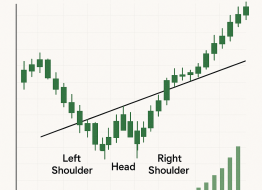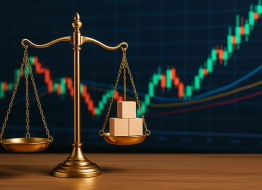What Is a Trader? Definition, Types, and How to Start Trading
What Does “Trader” Mean?
In the financial world, a trader is a person or entity that buys and sells financial instruments such as stocks, bonds, commodities, or currencies with the goal of making a profit from price fluctuations. These trades may occur on a stock exchange, in over-the-counter markets, or through electronic platforms.
Unlike investors who focus on long-term capital appreciation, traders are typically interested in shorter timeframes and employ various trading strategies to seize opportunities presented by the markets. They may use technical analysis, news-based trading, or volume-based approaches to inform their decisions.
While some traders work for financial firms, others operate independently, sometimes starting right after university or even during their law school or state university studies as a way to explore financial markets.
Key Points to Remember
- A trader is an individual who participates in the stock market or other financial markets by buying and selling assets.
- They may be affiliated with an institution or operate as a retail trader using personal capital.
- Traders rely on strategies such as scalping, swing trading, or momentum trading to achieve profits.
- Many begin their journey with a demo account, which allows them to start trading without risking real money.
- Foundational knowledge, whether from a university program in finance or self-study, plays a vital role in a trader’s development.
What Does a Trader Actually Do?
Traders differ from investors mainly in the time horizon and method. Investors typically hold assets for years based on fundamentals and long-term growth, while traders look for quick gains from price changes over days, hours, or even minutes.
Traders often:
- Analyze markets using technical analysis tools and chart patterns.
- Follow news and economic reports to understand short-term sentiment.
- Execute trades on platforms connected to stock exchanges or global forex markets.
- Manage risk through stop-losses and capital allocation.
It’s not uncommon for traders to start learning about financial markets while still in state university or a law school, driven by curiosity or a desire to supplement their income.
Common Types of Traders
Trading isn’t a monolithic profession — there are many styles, each with its own risk profile and strategy. Let’s explore the main ones:
Day Trader
- Makes several trades in a single day.
- Focuses on intraday volatility and rapid market moves.
- Frequently uses technical tools to time entries and exits.
Scalper
- Opens and closes trades within seconds or minutes.
- Seeks to profit from small price movements.
- Requires precision, discipline, and access to low-fee platforms.
Momentum Trader
- Trades assets showing strong directional trends.
- Often enters positions during news events or high volume surges.
- Momentum trading strategies often combine price action with macro signals.
Technical Trader
- Relies on technical analysis of charts, indicators, and historical data.
- Avoids emotional decisions by sticking to predefined trading rules.
- May trade across various markets — from the stock exchange to commodities and forex.
Fundamental Trader
- Bases decisions on corporate reports, interest rates, and geopolitical shifts.
- Consider long-term economic factors and law affecting regulation or taxation.
- Ideal for those with a background in finance, economics, or even law school.
Swing Trader
- Holds positions for days or weeks to capture short-term trends.
- Uses a mix of technical and sometimes fundamental insights.
- Balances trading frequency with deeper market analysis.
What Skills and Tools Do Traders Use?
To navigate complex and fast-moving markets, traders need both knowledge and the right toolkit. These may include:
- Demo accounts to practice strategies before risking real money
- Real-time stock market data feeds
- Analytical platforms for technical analysis
- Economic calendars with key reports and announcements
- Journaling tools to review and refine performance
Many traders develop their skills through online courses, mentorships, or formal education at a university or business school. Even law students sometimes pivot into trading, especially those drawn to regulatory analysis or crypto law.
Why Do People Become Traders?
Motivations vary widely:
- A desire to generate money independently
- Intellectual curiosity and a passion for market dynamics
- Flexibility and autonomy compared to traditional careers
- Exposure to real-world economics while still at university
In recent years, platforms offering demo accounts have made it easier than ever for beginners to start trading with zero financial risk — an ideal entry point for students and working professionals alike.
However, it’s essential to approach trading with a realistic mindset. While financial independence is appealing, so too are the challenges, and very few succeed without a disciplined approach and years of refinement.
Risks and Responsibilities
No matter how educated or prepared you are, trading involves real risk. Key dangers include:
- Losing more than your initial capital, especially in leveraged environments
- Making decisions based on emotion rather than logic or data
- Overconfidence from simulated success in a demo account
- Ignoring compliance, tax laws, or the legal implications of unregulated trading
If you’re still in university or early in your career, trading can be an excellent way to learn market mechanics — but it should never substitute proper financial planning or legal awareness.
FAQ
Do I need a university degree to become a trader?
Not necessarily. While formal education in finance, economics, or law can help, many successful traders are self-taught or start through demo accounts and online learning.
What is the difference between stock market and stock exchange?
The stock market refers to the entire ecosystem of buying and selling shares. A stock exchange, like the NYSE or NASDAQ, is a specific platform where these transactions occur.
Can law school graduates become traders?
Yes. Some use their analytical and regulatory expertise to trade, particularly in legal-sensitive markets like crypto, ESG, or derivatives.
How do I start trading without risking money?
Use a demo account. It simulates live market conditions but uses virtual money, allowing you to test strategies safely.
Is technical analysis enough to succeed in trading?
Technical analysis is a popular tool, especially for short-term strategies. However, many traders also incorporate news, sentiment, and fundamental data for more balanced decisions.
Latest video


